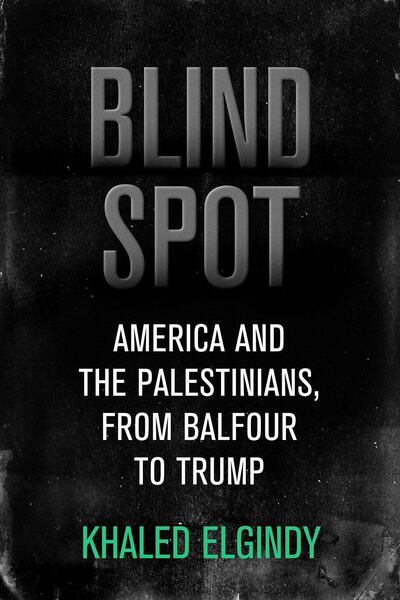T his month, the US will sponsor an economic workshop in Bahrain billed as the first stage of the White House's plan for a Palestinian-Israeli agreement, described by US President Donald Trump as the "deal of the century". Among many problems with the conference is the reality that the supposed beneficiary of the "economic dividends" – the Palestinians – are not going to attend. That's unsurprising, because Trump's administration has been treating the rights of the Palestinians – the occupied – as practically inconsequential, compared to the professed needs of the Israelis – the occupiers.
But is that attitude and approach really so novel in Washington? A book by a fellow of the Brookings Institution, one of Washington's most prominent think tanks, American scholar Khaled Elgindy, argues it is not. It's an argument that hits at the basis of much discussion in Washington when it comes to the question of Palestine. Elgindy litigates his thesis with evidence and passion, backed up by years of analysis on how Washington has engaged with the subject of Palestine, from deep within the US establishment. But unlike many who tackle the issue in Washington, Elgindy writes from the standpoint of someone who not only knows Washington, but has spent much time in Palestine, often advising the Palestine Liberation Organisation on this very question.
Elgindy's crucial point is quite simple. As the main sponsor of the peace process between the the Palestinians and Israelis, the US has seldom been a genuinely "honest broker". Rather, Washington has prioritised the Israeli position in key ways, and has had a rather consistent – and inferior – view of the Palestinian position.

The title of Elgindy's book is Blind Spot, which evokes a sense of blinkered vision when it comes to Washington's view of the conflict. Moreover, he focuses on the American role and responsibility in the peace process, rather than placing an onus on either the Palestinians or Israelis, or indeed both.
His conclusion makes for stark reading. His analysis reveals that the "fatal flaw" of the US approach is equally straightforward, that Washington has assumed that peace could happen without challenging Israeli power on the one hand, and that it was possible to neutralise internal Palestinian politics at the same time. As such, it turned the usual mediation model on its head. It alleviated pressure on the stronger, occupying power and increased pressure on the occupied, far weaker power.
The outcome of this approach should have been predictable and yet, it has continued for decades. The occupation was strengthened, even deepened, and the power quotient steadily changed in support of the occupier, while simultaneously negating the existence of a strong set of Palestinian institutions that could take advantage of any negotiated settlement.
But Elgindy's work is not simply an analysis of the present, nor of the recent past. Rather, it is a carefully woven chronicle of history, going back to the origins of the Palestine question in the 1917 Balfour Declaration, in which one power made promises to another force – the Zionist movement – which involved the disenfranchisement of the Palestinians. He then traces America's role in engaging the two movements of the modern Jewish national project in Palestine and the Palestinian Arab project of self-determination.
While London and Washington have historically claimed a "special relationship" of their own, discussions in London seem to look exceedingly different on the topic of the Israeli occupation. Much of what passes in London as straightforward, centrist analysis on the situation – even from the right-wing – would be deplored by many in Washington as being from the radical, marginal left. Such is the relative nature of what is considered to be "normal" on the topic of Palestine.
When it comes to Elgindy's work, however, none of that is applicable. He tries hard to be balanced, and rooted in international law. But because of the surrounding environment, his work, based on such common-sense fact-finding, inevitably turns into a regular and consistent challenging of the hegemonic discourse around the Palestine question in Washington. What makes his work even more intriguing is that he did this not as an outsider, but as a Brookings Institution fellow. That think tank, where I also spent time as a fellow, is often described as a "revolving door" in Washington, an organisation whose fellows have contributed several staff over the years to various administrations on the left and the right of the US political establishment.

In his book, Elgindy identifies the pressures of American domestic politics and the "special relationship" with Israel, as it unfolded during the 20th and 21st centuries. He does so while remaining aware of many other examinations of US policy from within the broader Washington establishment on the same issue and critically analyses many points of those examinations, in a way that is refreshing, informed, and unapologetic. His ability to succinctly point out relevant and pertinent lessons for that same establishment is virtually unparalleled – and signifies a critical value to this ground-breaking work.
There will be many books that historians will ponder in the future to understand America's role in the peace process between the Palestinians and the Israelis. There will be few that compare to Elgindy's in the way it understands the basic flaw underlying Washington's approach in that regard.












